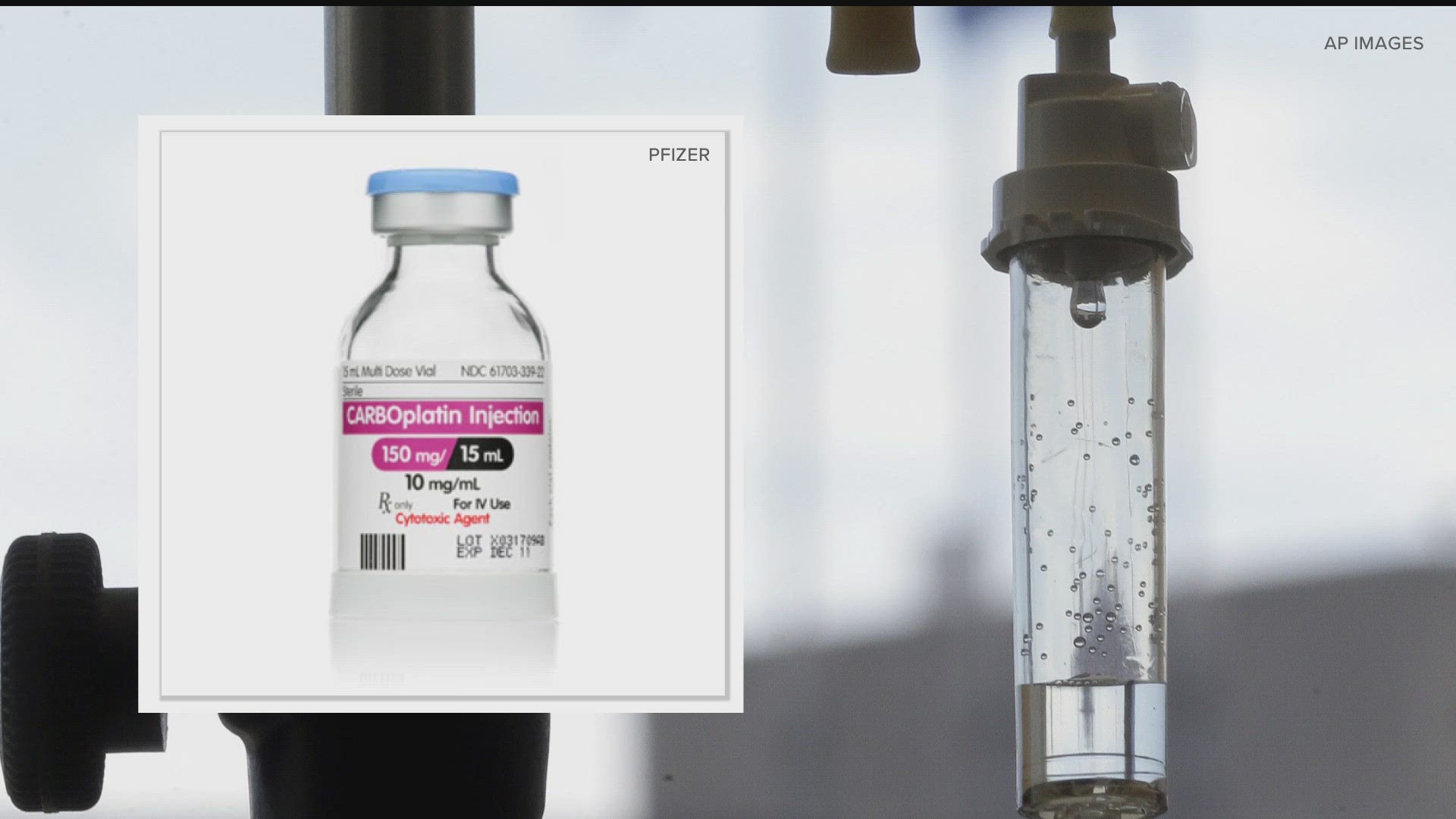MINNEAPOLIS — Carboplatin and Cisplatin are two chemotherapy drugs that are used to treat a wide range of cancers. The shortage of both drugs has been reported nationwide as early as this past winter, but in the past month or so it has hit Minnesotans like Cheryl, hard.
"I was diagnosed in 2014, so I'm a survivor of nine plus years, which is really great for ovarian cancer," she said.
Cheryl, who did not want to share her last name for privacy reasons, said she has been on a regimen with carboplatin for the last nine years of her recovery journey. While no chemotherapy is a cakewalk, she said Carboplatin has been working well for her.
"I've been doing pretty well, I've been pretty stable," Cheryl said. "I've been able to get around pretty good. I have fatigue but my neuropathy had not gotten worse, that was the result of my initial treatment, I got neuropathy in my hands and feet."
However, with the shortage, along with the sister-drug cisplatin shortage, Cheryl said she's been put on a different drug recently.
"That would be not working out for me, I wanna emphasize that!" Cheryl said with a laugh when asked how the new drug was working for her. "Because my neuropathy after the first treatment was a lot worse. The numbness in my hands and feet, and this affects my balance, my ability to motor around."
She said prior to her new treatment, she was able to 'motor around' in what she called her trike. She said getting around on her own and being able to move freely was what gave her a lot of joy.
Now, with the neuropathy back, it's made it harder for her to move.
"Also there's a real sensitivity to cold," Cheryl added. "The directions say put gloves on when you take anything out of the freezer, and it hurts like pins."
Kathleen Gavin, the Executive Director of Minnesota Ovarian Cancer Alliance said she's heard physicians have been given advice to extend the supply that they already have.
"Give less than what is considered the optimal dose, they're being told to give 80% instead of a 100%," Gavin said. "Or give it every five weeks instead of every three weeks."
In terms of factors driving the shortage, according to the FDA's drug shortage list, the reasons vary. Backorders are one, and an increase in demand is another.
"As our population ages, there is a higher incidence of cancer," Gavin said. "Carboplatin is a drug that is used for many types of cancer, so there's just an increased need for it."
Plus, another contributing factor to the shortage, is the fact that manufacturers simply aren't making it, because both Cisplatin and Carboplatin are generic.
"There's no money to be made," Gavin said. "Or very little profit to be made in making these drugs. So the manufacturers don't really have a big incentive to make them."
Some companies are listing late summer as their timeline for restocking the medication. Until then, Cheryl said she has no choice but to keep rolling with the punches.
"When you get cancer, you think of all these bad things that can happen -- like this can go wrong, chemo can stop working," Cheryl said. "I did not see this one coming. So I guess, my advice is not to worry about all this stuff so much because it might be something that you never expected."
MOCA, as an advocacy group said it has reached out to Minnesota representatives to urge lawmakers to reauthorize the Pandemic and All Hazards Preparedness Act (PAHPA).
PAHPA includes policies that could help with the shortage but must be renewed by September 30th, 2023.
In a statement MOCA said,
"MOCA has asked our state and federal lawmakers to assist in mitigating the shortages, and we are collaborating with local and national advocacy organizations to find possible solutions to ensure patients receive access to necessary medications."

